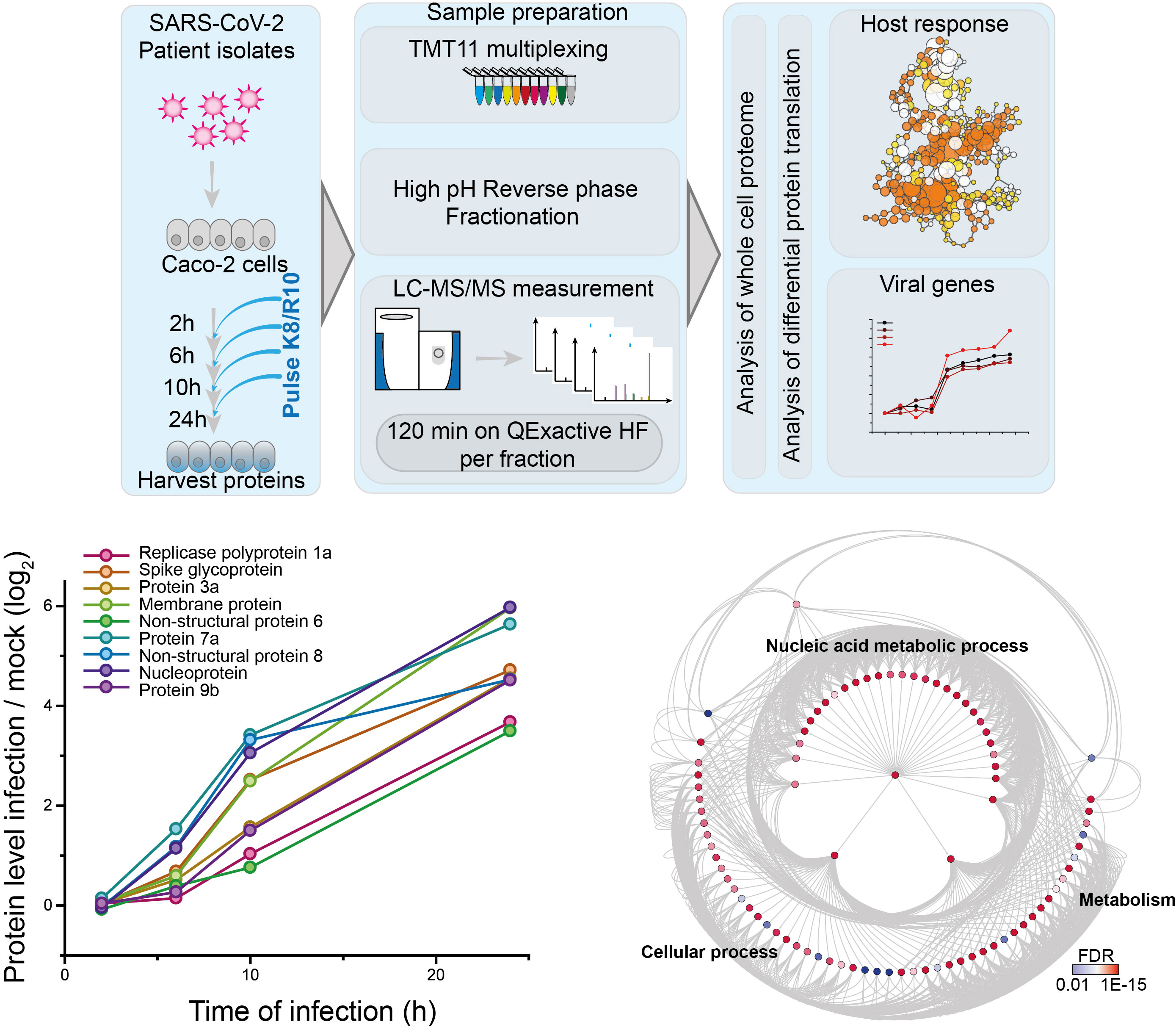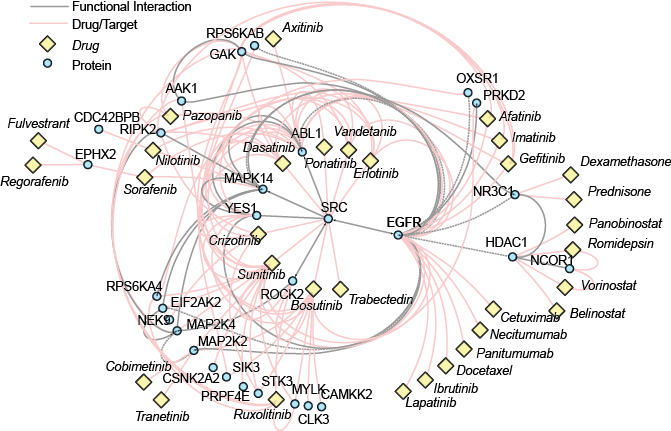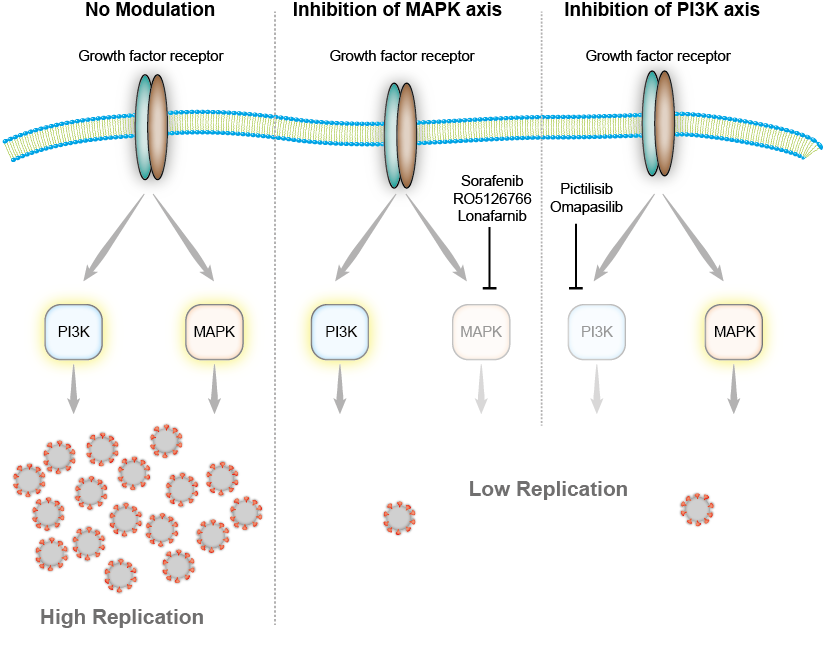SARS-CoV-2 infected host cell proteomics reveal potential therapy targets
The new coronavirus – SARS-CoV-2 – has been quickly spreading around the globe since the beginning of 2020. The resulting disease COVID-19 has become a world-wide pandemic. We teamed up with Jindrich Cinatl at the Institute of Medical Virology (University Hospital Frankfurt) to study SARS-CoV-2 and identify new therapy options. We developed a novel cellular infection system with viral isolates from a COVID-19 patient, characterized by proteomics how the host cell changes over time after SARS-CoV-2 infection, and tested drugs targeting the identified pathways. We revealed a number of drugs that efficiently prevented virus replication in cells showing potential therapeutic strategies against COVID-19.
The proteomics data is available as raw files, TMT_scheme and from our interactive online tool
 |
| SARS-CoV-2 infected host cell proteomics reveal potential therapy targets. (Top) Experimental design, cells were infected with SARS-CoV-2 and changes in the host cell proteome and viral proteins monitored over time. (Left) Increase in SARS-CoV-2 viral proteins over time. (Right) Changes in clusters of nucleic acid biosynthesis upon SARS-CoV-2 infection. |
Growth factor receptor signaling inhibition prevents SARS-CoV-2 replication
Signaling events underlying the host cell response to SARS-CoV-2 remains unclear and hinder the development of COVID-19 therapeutic approaches. Employing a human cell infection model for SARS-CoV-2, we analyzed the dynamic changes of protein modification on a system-wide scale. We performed deep phospho-proteome analysis with tandem mass tag (TMT) multiplexing to reveal signaling upon infection. This comprehensive examination generally characterized signaling upon infection and identified growth factor signaling as key feature. Best known for its role in cancer, growth factor signaling has already been extensively targeted by drugs, from which many are already clinically approved. Usage of five drugs inhibiting growth factor receptor signaling prevented SARS-CoV-2 replication in cells and decreased total viral load. Growth factor receptor signaling is a strong candidate for COVID-19 treatment.
Link to publication in Molecular Cell
Total proteome and phosphoproteome data are available as RAW files
And Excel as files: Phospho and Proteome
 |
 |
| Figure: Growth factor receptor signaling inhibition prevents SARS-CoV-2 replication. (Top) Drug-target-interaction network showing significantly induced signaling molecules and corresponding, approved drugs targeting these molecules. (Bottom) Scheme of effect of growth factor signaling axes on SARS-CoV-2 replication. Without interference the PI3K and MAPK signaling axes are activated and allow viral replication. Inhibition of either axis by small molecule drugs prevents viral proliferation. |